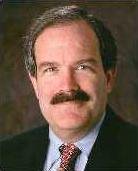When George Orwell first coined the phrase “Big Brother is watching you,” he knew what he was talking about.
Thanks to the NSA wiretapping of the Bush and Obama administrations, some version of Big Brother is indeed monitoring Americans just about any time they talk on the phone or send an email.
If you are a candidate running for political office, you are probably being watched by more than Big Brother.
With the proliferation of camcorders and smart phones, the chances are good that someone is out there in the audience videotaping every public remark you make.
The person shooting that video could be a journalist or a tracker, someone who is hired to follow candidates and tape their comments in case they say something dumb.
Trackers have become a standard part of nearly every political event, Republican or Democratic.
Internet postings of the video they shoot have also caused problems for a lot of candidates.
An example is the video that surfaced during the 2012 presidential campaign of Mitt Romney talking about the “47 percent” of Americans that he contended would never vote for him.
In one of Georgia’s congressional races this year, a video clip circulated of Savannah physician Bob Johnson telling an audience: “I’d rather see another terrorist attack — truly, I would — than to give up my liberty as an American citizen.” He was complaining about having to undergo airport security searches.
That clumsy remark played a role in Johnson’s loss to Buddy Carter in the 1st Congressional District’s GOP primary.
In the Senate race, David Perdue was caught off-guard when video became public of his disparaging remark about Karen Handel’s lack of a college degree: “I mean, there’s a high school graduate in this race, OK? I’m sorry, but these issues are so much broader, so complex.”
Unlike Johnson, Perdue survived that video moment to win the Republican runoff for the Senate. But as any candidate could attest, you never can be sure what is going to show up online.
Trackers and journalists usually are allowed to shoot their videos without being harassed at public events, but that isn’t always the case.
Nydia Tisdale is an independent journalist who often attends political gatherings to shoot video that she later posts on YouTube.
At a city council meeting in Cumming two years ago, Mayor Ford Gravitt ordered Tisdale to be removed from the meeting room by police because she would not stop videotaping. A judge later ordered the city to pay $12,000 in penalties for ejecting her.
At a recent Republican rally in Dawsonville, Tisdale was shooting video of speeches by statewide candidates. She taped Insurance Commissioner Ralph Hudgens making this comment about Democratic Senate candidate Michelle Nunn: “I thought I was gonna absolutely puke, listening to her.”
A few minutes after Tisdale recorded that humorous remark, she was suddenly told to stop taping by a Dawson County sheriff’s deputy. When she continued to shoot video, the deputy grabbed her, dragged her away from the meeting area, and had her arrested on charges of obstructing an officer.
It should be noted that Tisdale was attending an event to which the general public had been invited. She was doing the same thing she had done at that Cumming City Council meeting — a videotaping whose legality was upheld by a Superior Court judge.
A local journalist at the same event as Tisdale was taking photos and making an audio recording of the speeches, but he was not ordered to stop taping and was not forcibly removed from the meeting by a sheriff’s deputy.
The media coverage of the Tisdale incident has put Georgia in an embarrassing light — we’re now known as the state that beats up journalists.
Videotape is a reality of modern-day politics. If you decide to run for public office, you have to assume that your public remarks are likely to be recorded by somebody. That’s how the game is played these days.
Attorney General Sam Olens, who was at the event where Tisdale was arrested, had this observation: “If we stand for anything as a party, what are we afraid of with the lady having a camera filming us? What are we saying here that shouldn’t be on film? What message are we sending?”
Tom Crawford is editor of The Georgia Report, an Internet news service at gareport.com that reports on state government and politics. He can be reached attcrawford@gareport.com.








